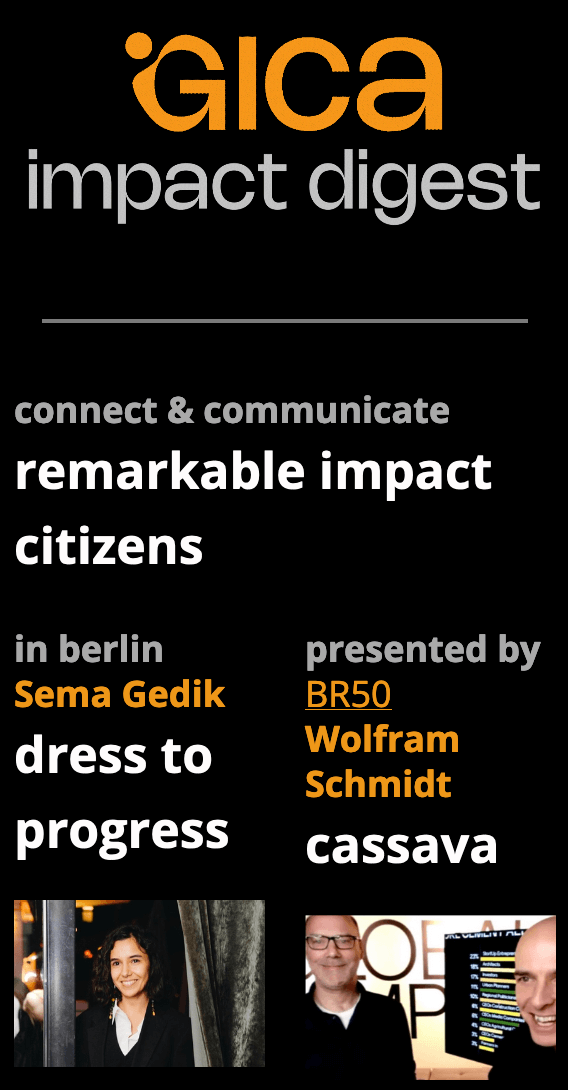Heinrich Katz, the founder and CEO of Katz Biotech AG, is a pioneer in insect biotechnology.
He has been dedicated to breeding insects for natural pest control and animal feed for decades. The targeted use of beneficial insects, like the Black Soldier Fly, can help restore ecological balance in nature and promote sustainable agricultural systems.
In his interview with GICA, Katz discussed his company’s innovative solutions that could revolutionize the global reduction of pesticides.
Better than chemicals!
Katz’s primary objective is establishing insect biotechnology as a sustainable and eco-friendly alternative to traditional agricultural methods.
Katz Biotech AG‘s team comprises agricultural engineers, biologists, chemists, and process specialists dedicated to industrial mass production of specific insects and mites for biological pest control. Furthermore, they extract insect ingredients and utilize them as a protein source for livestock and pets.
Katz’s primary objective is establishing insect biotechnology as a sustainable and eco-friendly alternative to traditional agricultural methods. The company’s solutions are more effective than chemical pesticides, cost-effective, and environmentally friendly.
Heinrich Katz: “Agriculture can be challenging. Pests threaten crops.
In the past, we turned to using poison to deal with these issues, but this naturally posed health risks for humans. However, observation has shown us that, in nature, there is already a solution for every problem.
While vegans are considered good in human society, the same is not always accurate in the animal kingdom. For example, the aphid, a pure vegan, eats the tomato, but the ladybug, a natural carnivore, eats the aphid.

Using natural methods can avoid the need for harmful chemicals. These methods have been optimized over time, making them more effective than chemicals in controlling pests.
Another benefit is that our methods are more cost-effective than chemical pest control. We can find a balance between ecology and economy.”
Insect biotechnology has tremendous potential in markets in the global South, where chemical pest control methods are often expensive and inefficient.
Katz Biotech AG has made significant progress, but the company still faces some obstacles. Katz believes networking and collaborating with other companies, authorities, and organizations is crucial to overcoming regulatory barriers and accelerating the dissemination of innovative solutions.
Insect biotechnology has tremendous potential in markets in the global South, where chemical pest control methods are often expensive and inefficient. Insects can be utilized in various areas of human nutrition, agriculture, gardening applications, and raw material suppliers for medicine and technology. The primary challenge is logistics, as live animals are involved, so supply chains must be kept short.
But where does Katz position himself between sustainability, impact, effectiveness, and capitalist profit-making?
Heinrich Katz: “I consider myself lucky that my project was funded. However, research on the subject has been ongoing since the mid-last century, and the results are clear: humans tend to do something only if it benefits them.
For instance, if I suggest that it’s much more sustainable to consume insects as a source of food, it might be a good idea in theory, but if it is twice as expensive, doesn’t taste good, and perhaps even has health disadvantages, nobody will be interested in doing it.

Therefore, my first priority is to ensure that it is cheaper, tastes better, and maybe even helps build muscles; then sustainability will follow. This is how I make money with my project, and this is why I always ask, ‘What advantage can you bring?'”
Heinrich Katz’s dream of an insect empire
Katz educates and supports young students, entrepreneurs, and researchers. He considers himself a part of a worldwide network of sustainability companies striving for positive change in the world.
His vision goes beyond economic objectives and encompasses the creation of a sustainable future for future generations.
Heinrich Katz: “My favorite personal project is located in the slums of Nairobi. A few friends and I provide financial support to an organization that sends children to high school and university.
My ultimate goal is to start an insect farm where we can train students from this high school and university. I have been retired since March 1, 2024, but my son is currently pursuing a master’s in management alongside his job.
I often discuss various topics with him and hope he will take over this project in a few years, continue it, and make a real difference.”
Saving the world? No, thanks!
Their strong commitment to sustainability, technological expertise, and visionary outlook for a better future make them significant players in the field of insect biotechnology.
Innovative solutions, such as those developed by Heinrich Katz and Katz Biotech AG, are essential in tackling the global challenges in agriculture and nutrition.
Their strong commitment to sustainability, technological expertise, and visionary outlook for a better future make them significant players in the field of insect biotechnology.

Hopefully, their efforts will continue to be successful and contribute to solving global issues while promoting sustainable development. However, Heinrich Katz clarified that he has no intention of saving the world with insects.
Heinrich Katz: “On the homepage of many innovative startups, you may read: ‘We want to save the world.’ While this is a noble goal, it is important to remember that you can’t save the world alone.
Every small contribution is crucial and helps to complete the bigger picture. Don’t get ahead of yourself trying to save everything all at once. Just get started and take it one step at a time.
Difficulties will come naturally, and being resilient and prepared for them is important. I like to say it’s like mowing a lawn with stones on it. Remove the stones before you start saving the world.”
Heinrich Katz on LinkedIn? Here!
A special thanks to the photographers who provided the beautiful photos above:
Shad Arefin Sanchoy, Horror by Numbers , Elegance Nairobi, and Henry Lai.



